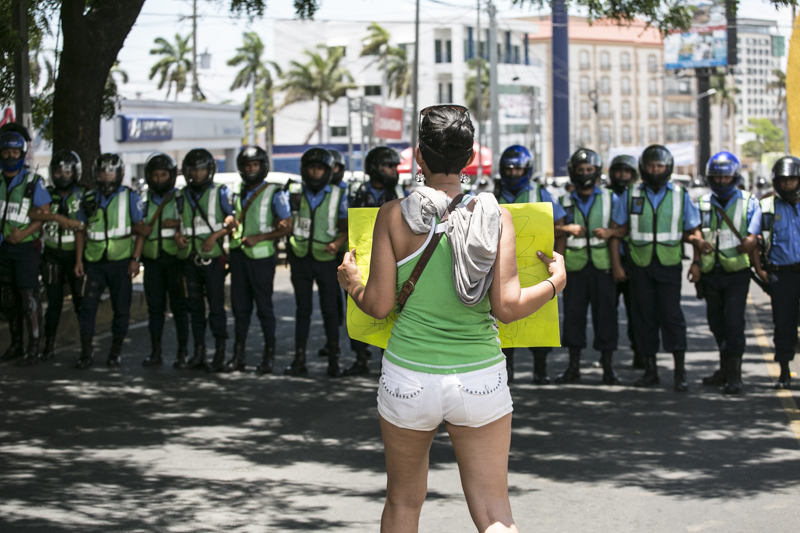Puede leer este pronunciamiento en español, aquí.
Within a three-day span, Nicaragua’s president Daniel Ortega issued legislation by decree that reduced pensions for retired people and increased contributions for workers and employers. This set off peaceful protests on April 18 by retirees, students and other groups in Managua. In response, the government’s paramilitary forces “Juventud Sandinista” (Sandinista Youth) repressed protesters violently, injuring many of them, including journalists and human rights defenders such as Ana Quirós (director of the Center for Information and Consulting Services on Health (CISAS).
Excessive use of force
The government’s hard-handed response led to increasingly larger protests that spread to other cities. Members of the Nicaraguan human rights organization CENIDH (a partner organization of Hivos funded through the Nexos program of the Dutch Ministry of Foreign Affairs) were arrested. Journalists from the online newspaper Confidential were beaten up.
Police forces and the Juventud Sandinista soon escalated from using rubber bullets and tear gas to physical violence and firearms. This excessive use of force has led to 26 deaths, over 100 injuries, dozens of vandalized businesses and the shutting down of several independent TV channels that were covering the protests.
After Ortega scrapped his Social Security reforms on April 22 and agreed to enter into talks, the streets became quieter, but the presence of security services increased. Protesters remain steadfast in their demand that the rule of law be fully restored.
Over 30 years of working toward progress in Nicaragua
Hivos has been working in Nicaragua for more than 30 years. During this time, we have helped build the dream of open and green societies. We have supported people and organizations that work for the rights of journalists, women, LGBT+ and indigenous groups. We have worked with women who sustainably produce energy for their families and communities; we have fought tirelessly for increased transparency and accountability in the country.
Shrinking civic space worldwide
This is why these extreme violations of the right to freedom of assembly, freedom of speech and social protest affect us so deeply. They are part of a growing trend beyond the borders of Nicaragua: the rapidly shrinking space for citizens and civil society worldwide.
For this reason we call upon the Nicaraguan government to:
- cease all attacks against protesters;
- uphold the right of peaceful assembly and association (Article 20 Universal Declaration of Human Rights,) and freedom of speech (Article 19, UDHR);
- conduct prompt, impartial and transparent investigations to identify those who perpetrated deaths and injuries, including their possible networks, and try them in a court of law;
- be accountable and put an end to human rights violations and impunity; and
- fully restore freedom of speech, including the reopening of independent broadcasters that were taken off the air.
We also urge human rights organizations, development cooperation agencies, international and independent media and all Nicaraguans to:
- maintain constant vigilance against further reprisals of human right defenders and journalists in Nicaragua
- document, register, publish all acts of violence in a transparent, objective manner
Inspiring collective courage
Nobody should have to risk their lives, let alone die, to exercise their rights. We hope that the people’s voice is finally heard and taken into account in future economic, social and environmental decisions. Nicaragua’s collective courage inspires us.

